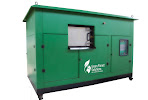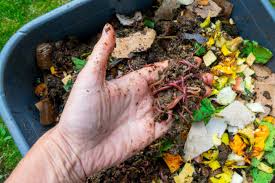Top 7 Composting Machine Manufacturers in India (2025 Comparison)
With India enforcing stricter Solid Waste Management Rules, businesses, housing societies, hotels, and institutions are actively searching for reliable composting solutions. Choosing from the top composting machine manufacturers in India is no longer just about price — it’s about compliance, ROI, performance, and long-term support.
In this expert guide by Green Planet Solutions Pune, we compare the top 7 composting machine manufacturers in India (2025) to help decision-makers make a confident, future-proof investment.
👉 Get a FREE Composting Machine Recommendation for Your Property
Who Should Read This Guide?
- Housing Society Committees
- Hotels & Restaurants
- Malls & Commercial Complexes
- Hospitals & Institutions
- Facility Managers & Builders
Top Composting Machine Manufacturers in India – 2025 Comparison
1. Green Planet Solutions Pune
Green Planet Solutions Pune is a trusted leader among the top composting machine manufacturers in India, offering robust, odor-free, and CPCB-compliant composting systems.
- Capacity: 20 kg/day to 5 TPD+
- Best for: Societies, hotels, malls, institutions
- USP: High ROI, local service support, compliance expertise
2. Manufacturer A
Known for automated organic waste converters suitable for large commercial operations with consistent waste generation.
3. Manufacturer B
Offers compact composting machines ideal for restaurants and small housing societies.
4. Manufacturer C
Specializes in large-scale industrial composting systems for municipalities and bulk generators.
5. Manufacturer D
Focuses on modular composting units with semi-automatic operation.
6. Manufacturer E
Provides low-maintenance composting machines with basic automation.
7. Manufacturer F
Emerging player offering budget-friendly composting solutions for small setups.
Problems Businesses Face Without the Right Composting Partner
- High waste transportation costs
- Municipal penalties for non-compliance
- Odor & hygiene complaints
- Low compost quality
- Poor after-sales support
Choosing from the top composting machine manufacturers in India eliminates these risks.
📊 Request a Free Composting ROI & Capacity Assessment
How to Choose the Best Composting Machine Manufacturer in India
- Daily waste handling capacity
- Compliance with SWM Rules
- Odor & leachate control technology
- Power consumption & maintenance cost
- Service & AMC availability
Why Green Planet Solutions Pune Stands Out
As one of the most reliable top composting machine manufacturers in India, Green Planet Solutions Pune combines engineering expertise, regulatory knowledge, and on-ground experience.
- Customized composting solutions
- End-to-end project execution
- Strong after-sales & training support
Visit us: www.thegreenplanetsolutions.com
♻️ Book a Free On-Site Composting Consultation
Free Resource for Decision Makers
Download our Composting Machine Buyer Checklist (India – 2025) to avoid costly mistakes.
⬇️ Download Free Composting Buyer Guide
Final Verdict
Selecting from the top composting machine manufacturers in India is a long-term decision impacting compliance, costs, and sustainability. With rising regulations and waste volumes, investing in the right partner today ensures peace of mind tomorrow.
#TopCompostingMachineManufacturersInIndia #CompostingMachineIndia #OrganicWasteManagement #GreenPlanetSolutions #WasteToWealth #SWMCompliance #SustainableIndia








